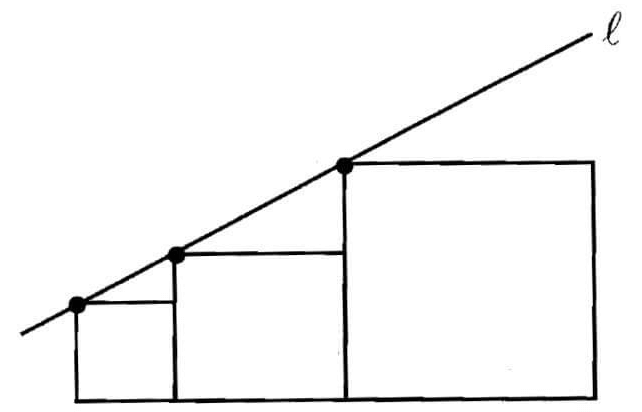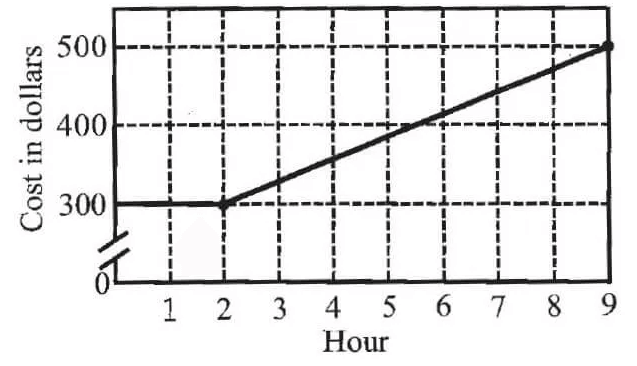CIRCUMFERENCE AND ARC LENGTH
The circumference of a circle is the distance around the circle.
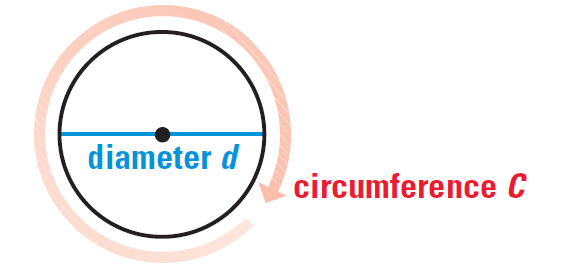
For all circles, the ratio of the circumference to the diameter is the same. This ratio is known as π, or pi.
An arc length is a portion of the circumference of a circle. We can use the measure of the arc (in degrees) to find its length (in linear units).
Circumference of a Circle
The circumference C of a circle is
C = πd
or
C = 2πr
where d is the diameter of the circle and r is the radius of the circle.
Arc Length
In a circle, the ratio of the length of a given arc to the circumference is equal to the ratio of the measure of the arc to 360°.
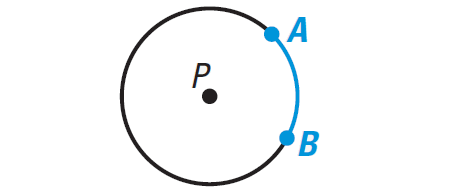
In the diagram shown above, we have
(Arc length of AB)/2πr = m∠arc AB/360°
or
Arc length of AB = [m∠arc AB/360°] ⋅ 2πr
Length of a Semicircle and 90° Arc
The length of a semicircle is one half the circumference, and the length of a 90° arc is one quarter of the circumference.

Finding Circumference
Example 1 :
Find the circumference of a circle with radius 6 centimeters. Round decimal answers to two decimal places.
Solution :
The formula for circumference of a circle is given by
C = 2πr
Plug r = 6.
C = 2π(6)
C = 12π
Use calculator to get the value of π.
C ≈ 37.70
Hence, the circumference is about 37.70 centimeters.
Using Circumference
Example 2 :
Find the radius of a circle with circumference 31 meters. Round decimal answers to two decimal places.
Solution :
The formula for circumference of a circle is given by
C = 2πr
Plug C = 31.
31 = 2πr
Divide each side by 2π.
31/2π = r
Use calculator to get the value of π.
4.93 ≈ r
Hence, the radius is about 4.93 meters.
Finding Arc Lengths
Example 3 :
Find the length of the arc AB in the diagram shown below.
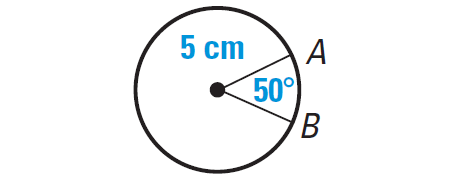
Solution :
Formula for length of the arc :
Arc length of AB = [m∠arc AB/360°] ⋅ 2πr
Substitute.
Arc length of AB = [50°/360°] ⋅ 2π(5)
Simplify.
Arc length of AB ≈ 4.36 centimeters
Example 4 :
The track shown below has six lanes. Each lane is 1.25 meters wide. There is a 180° arc at each end of the track. The radii for the arcs in the first two lanes are given.
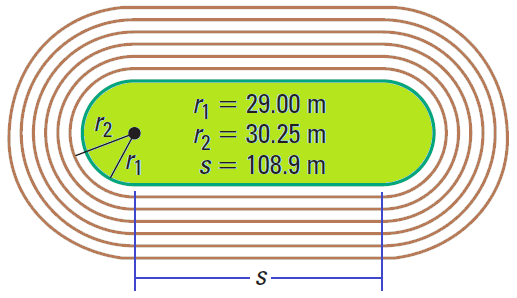
a. Find the distance around Lane 1.
b. Find the distance around Lane 2.
Solution :
The track is made up of two semicircles and two straight sections with length s.To find the total distance around each lane, find the sum of the lengths of each part.Round decimal answers to one decimal place.
|
Part (a) : Distance = 2s + 2πr1 = 2(108.9) + 2π(29.00) ≈ 400.0 meters |
Part (b) : Distance = 2s + 2πr2 = 2(108.9) + 2π(30.25) ≈ 407.9 meters |
Using Arc Lengths
Example 5 :
Find the circumference of the circle shown below.
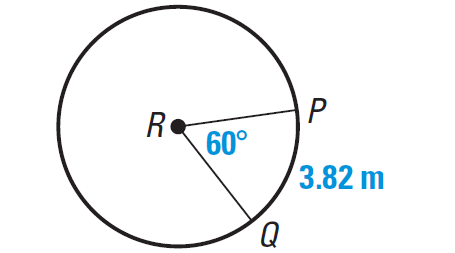
Solution :
(Arc length of PQ)/2πr = m∠arc PQ/360°
3.82/2πr = 60°/360°
3.82/2πr = 1/6
Take reciprocal on each side.
2πr/3.82 = 6/1
2πr/3.82 = 6
Multiply each side by 3.82
2πr = 6(3.82)
2πr = 6(3.82)
2πr = 22.92
Hence, the circumference of the circle is about 22.92 meters.
Example 6 :
Find the m∠arc XY.
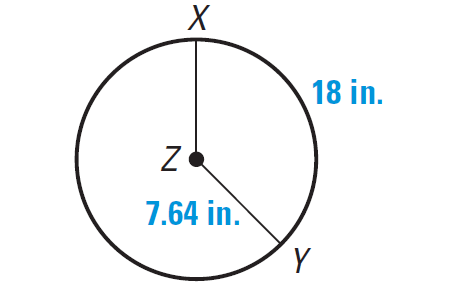
Solution :
(Arc length of XY)/2πr = m∠arc XY/360°
Substitute.
18/2π(7.64) = m∠arc XY/360°
18/15.28π = m∠arc XY/360°
Multiply each side by 360°.
360° ⋅ 18/2π(7.64) = m∠arc XY
135° ≈ m∠arc XY
Hence, m∠arc XY is about 135°.
Comparing Circumferences
Example 7 :
Tires from two different automobiles are shown below. How many revolutions does each tire make while traveling 100 feet?Round decimal answers to one decimal place.
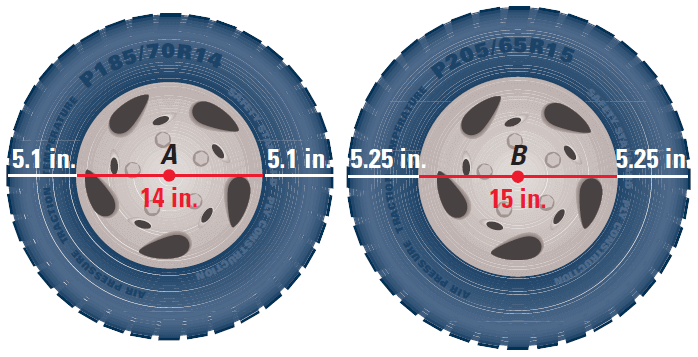
Solution :
Tire A has a diameter of 14 + 2(5.1), or 24.2 inches. Its circumference is π(24.2), or about 76.03 inches.
Tire B has a diameter of 15 + 2(5.25), or 25.5 inches. Its circumference isπ(25.5), or about 80.11 inches.
Divide the distance traveled by the tire circumference to find the number of revolutions made.
First convert 100 feet to 1200 inches.
|
Tyre A : = 100 ft/76.03 in = 1200 in/76.03 in ≈ 15.8 revolutions |
Tyre B : = 100 ft/80.11 in = 1200 in/80.11 in ≈ 15.0 revolutions |
Kindly mail your feedback to v4formath@gmail.com
We always appreciate your feedback.
©All rights reserved. onlinemath4all.com
Recent Articles
-
Digital SAT Math Problems and Solutions (Part - 146)
Apr 18, 25 06:52 AM
Digital SAT Math Problems and Solutions (Part - 146) -
Logarithmic Derivative Problems and Solutions
Apr 16, 25 09:25 PM
Logarithmic Derivative Problems and Solutions -
Digital SAT Math Problems and Solutions (Part - 145)
Apr 16, 25 12:35 PM
Digital SAT Math Problems and Solutions (Part - 145)
